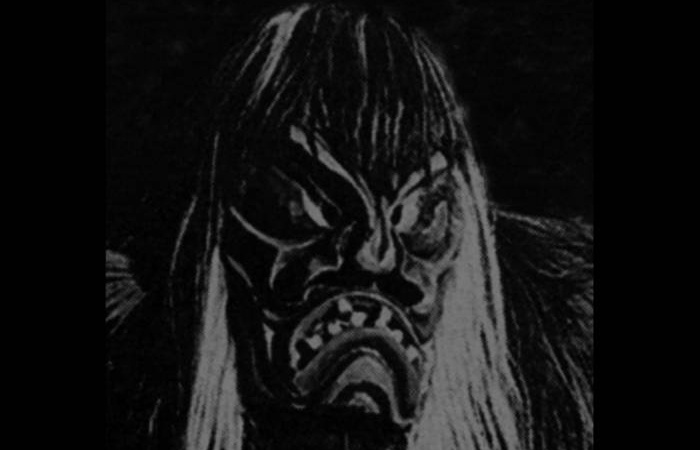Geister — the revelatory new full-length album from the long-running and rather prolific Swiss black metal project Paysage d’Hiver — treks through ominous snowy tumult with searing intensity. There’s an alluringly esoteric combination of bone-chilling atmosphere and scorching rage as the hazy album rolls on, surreally mixing these sensations into an unsettling reverie. It’s like a swirling fog in which every breath threatens to swallow up ice crystals.
Overall, the record is intense. The guitars seem noticeably sharper than one might expect from the atmospheric black metal that Paysage d’Hiver generally performs, and the volatile, thick fog that consistently courses through the album broadens the impact, suggesting (although not entirely turning into) something like ferociously pummeling crust. The journey is quite dynamically varied, even while sticking to the thunderous guitars (and formidable accompanying instrumentation) that define its runtime, but it’s also staggeringly weighty.
Although the album ends with the ambiance-centered “Geischtr,” there’s not exactly room for a break here. Besides the tearing ferocity, Geister also moves pretty quickly, as though capturing the sounds of a raging snowstorm. The consistently dramatically soaring album features intriguingly quieter moments on “Undä” and around “Gruusig” and “Schuurig,” but Geister remains agonizing.
As the sometimes frantic-sounding rhythms rush through Geister, there’s a sense of heated and disorienting energy, like attempting to move forward through an onslaught of snow and wind but just getting thrown back into the ground. In a feature generally in line with the compelling work that Paysage d’Hiver has released throughout the project’s over two decades of existence, Geister is startlingly expansive, delivering an immersive experience with wallops of extended atmosphere — but it’s also rattlingly uneasy, with grippingly trembling rhythms.
It’s not particularly fantastical or even just bright. Instead, Geister lands like a gravel pit. It’s just about relentlessly abrasive, with (among other elements) scouringly rough guitars.
The swiftly moving rhythms — which seem noticeably extra brisk on tracks including “Wüetig” and “Anders” — make the album seem at times like a harried journey through some desolate expanse, and the record’s grueling sonic texture makes the trek feel accessibly personalized, like confrontational jolts of energy. The experience of careening through Geister could be compared to the feeling of exhaustedly wandering through some abandoned and debris-strewn mountainside town covered in snow and ice while inwardly plagued by visions of the destruction that previously unfolded as snow continues to fall, with no break in the clouds — and no sign of life — in sight.
Eventually, the rhythms seem to evoke a creeping sense of sobering — and existentially reorienting — terror, because the atmosphere-drenched album’s snowstorm-like inward expanse stretches on to jarring extremes but the rhythms feel like avalanche-inducing shock waves. The record seems like the moment of a psychic break held in some kind of metaphysical stasis and repeatedly played out on a loop for over an hour (more than an hour and ten minutes of music appear on Geister).
The album is already at its place of unrest from its pretty much very first moments, but it is not unmoving — instead, it’s consistently devastating, like a snowstorm with flaming hail falling in the middle of it because: Why not? Whether or not the hail or snow are really there within the album’s teeming world, the strain is so excruciating that boundaries between what’s real and what’s illusory seem surreally blurred — but the feelings prove powerful.
Paysage d’Hiver has shared the following on Bandcamp about the narrative underlying Geister: “Each full-length release, including the so-called “demos” and regular albums, constitutes a chapter of a continuing story, which PAYSAGE D’HIVER narrate about a protagonist called “Der Wanderer”, who roams an otherworld realm. In “Geister”, the Wanderer has a lucid dream in which he meets beings from another dimension, which is in fact our world. To him, we terrestrials appear as the ghosts. Our only means of contacting the Wanderer in the world of PAYSAGE D’HIVER is through the rites of winter, such as the Tschäggättä, which is a traditional mask cult from the Lötschental, a valley in the canton of Valais in Switzerland.”
One of the masks that the artist references is on the album cover.
Geister by Paysage d’Hiver is available via Kunsthall Produktionen.
5/5 Stars
You may also like
-
Diana Kurz at Lincoln Glenn in New York: A Review of a Shining Art Exhibition
-
Dustin Hodges at 15 Orient in New York City: An Ensnaring Exhibition at an Exciting Gallery
-
Maren Hassinger at Susan Inglett Gallery in New York: Reviewing an Uplifting Art Exhibition
-
Enzo Shalom at Bortolami in New York City: Reviewing an Entrancing Exhibition of Paintings
-
“Ben Werther: Townworld” at Amanita in New York City: Reviewing a Richly Memorable Art Exhibition
